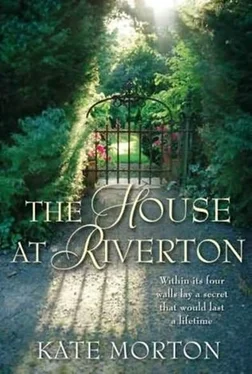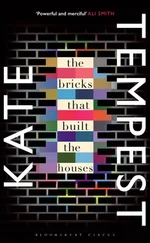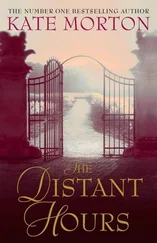The dull thump of faraway drums. Do you hear them, I wonder, or is it just me?
You have been patient. And there is not much longer to wait. For into Hannah’s world, Robbie Hunter is about to make his return. You knew he would, of course, for he has his part to play. This is not a fairytale, nor a romance. The wedding does not the mark the happy ending of this story. It is simply another beginning, the ushering in of a new chapter.
In a far grey corner of London, Robbie Hunter wakes. Shrugs off his nightmares and pulls a small parcel from his pocket. A parcel, nursed in his breast pocket since the final days of war, its safe delivery promised to a dying friend.
The Times
6 JUNE 1919
The Estate Market
LORD SUTHERLAND’S PROPERTY
The principal transaction this week has been the private sale, by Messrs. Mabbett and Edge, as briefly announced in The Times yesterday, of Haberdeen House, the ancestral home of Lord Sutherland. The house, at number seventeen Grosvenor Square, was sold to the industrialist Mr S. Luxton, and is to be occupied by Mr T. Luxton and his new wife, the Honourable Hannah Hartford, eldest daughter of Lord Ashbury.
Mr T. Luxon and the Hon. H. Hartford were married from the bride’s family home, Riverton Manor, outside the village of Saffron Green, in March and are now honeymooning in France. They will take up residence at Haberdeen House, to be renamed Luxton House, when they return to England next month.
Mr T. Luxton is the Tory candidate for the seat of Marsden in East London. The seat will be contested in a bi-election in November.
They have brought us to the spring fair by minibus. Eight in all: six residents, Sylvia and a nurse whose name I can’t remember-a young girl with a wispy plait snaking down her back to sweep her belt. I expect they think the day out does us good. Though what can be gained from exchanging comfortable surrounds for a muddy oval of tents selling cakes and toys and soaps I do not know. I should have been just as happy to stay at home, away from the bustle.
A makeshift stage has been erected behind the town hall, as it is each year, and rows of white plastic chairs assembled before it. The other residents and the girl with the plait are sitting by the stage watching a man pluck numbered ping-pong balls from a metal bucket, but I prefer it here on the little iron seat by the memorial. I feel strange today. It is the heat, I’m sure. When I woke my pillow was damp, and I’ve been unable to shake this odd foggy sensation all morning. My thoughts are skimming. Coming quickly, fully formed, then slipping away before I can properly grasp them. Like catching a butterfly. It is unsettling, leaves me irritable.
A cup of tea will see me right.
Where has Sylvia gone? Did she tell me? She was here only a moment ago, about to smoke a cigarette. Talking again about her man-friend and their plans to cohabit. Once upon a time I’d have considered such extramarital relations improper, but time has a way of changing one’s views on most things.
The exposed skin on the top of my feet is cooking. I consider slipping them into the shade but an irresistible sense of masochistic ennui bids me leave them where they are. Sylvia will see the red patches later, will realise how long she has left me.
From where I sit I see the cemetery. The eastern side with its line of poplars, new leaves quivering at the suggestion of a breeze. Beyond the poplars, on the other side of the ridge, are the gravestones, amongst them my mother’s.
It’s been an age since we buried her. A wintry day in 1922 when the earth was frozen solid and my skirts blew icy against my stockinged legs, and a figure, a man, stood on the hill, barely recognisable. She took her secrets with her, into the cold, hard earth, but I learned them in the end. I know a lot about secrets; I have made them my life. Perhaps I hoped in some way that the more I learned of secrets, the better I would be at hiding my own.
I am hot. It is far too hot for April. No doubt global warming is to blame. Global warming, melting the polar ice caps, the ozone hole, genetically modified food. Some other disease of the 1990s. The world has become a hostile place. Even the rainwater is not safe these days, acid rain they call it.
That’s what’s eating the war monument. One side of the soldier’s stone face has been ravaged, the cheek pockmarked, the nose devoured by time. Like a piece of fruit left too long in a ditch, gnawed by scavengers.
He knows about duty. Despite his wounds he stands to attention atop the cenotaph, as he has for eighty years, lone eye surveying the plains beyond the town, hollow gaze cast over Bridge Street toward the car park of the new shopping centre; a land fit for heroes. He is almost as old as I am. Is he as tired?
He and his pillar have become mossy; microscopic plants thrive in the etched names of the dead. David’s is on there, at the top with the other officers; and Rufus Smith the ragman’s son, suffocated in Belgium by a collapsed trench. Further down, Raymond Jones, the village peddler when I was a girl. Those little boys of his would be men now. Old men, though younger than I. It is possible they are dead.
No wonder he is crumbling. It is a lot to ask of one man, to bear the strain of near-infinite private tragedies, bear witness to near-infinite echoes of death.
But he is not alone: there is one like him in every English town. They are the nation’s scars; a rash of gallant scabs spread across the land in 1919, a spate of determined healing. Such extravagant faith we had then: in the League of Nations, the possibility of a civilised world. Against such determined hope the poets of disillusionment were lost. For every TS Eliot, for every RS Hunter, there were fifty bright young men espousing Tennyson’s dreams of the parliament of man, the federation of the world.
It didn’t last of course. It couldn’t. Disillusionment was inevitable; after the twenties came the depression thirties and then another war. And things were different after that one. No new memorials emerged triumphantly, defiantly, hopefully out of the mushroom cloud of World War Two. Hope perished in the gas chambers of Poland. A new generation of the battle-damaged were blown home and a second set of names chiselled onto the bases of existing statues; sons below fathers. And in everybody’s mind, the weary knowledge that some day young men would once again be falling, falling.
Wars make history seem deceptively simple. They provide clear turning points, easy distinctions: before and after, winner and loser, right and wrong. True history, the past, is not like that; it isn’t flat or linear; it has no outline. It is slippery, like liquid; infinite and unknowable, like space. And it is changeable: just when you think you see a pattern, perspective shifts, an alternative version is proffered, a long-forgotten memory resurfaces.
I have been trying to fix upon the turning points in Hannah and Teddy’s story; all thoughts, these days, lead to Hannah. Looking back it seems clear: there were certain events in the first year of their marriage that laid the foundation of what was to come. I couldn’t see them at the time; in real life turning points are sneaky. They pass by unlabelled and unheeded. Opportunities are missed, catastrophes unwittingly celebrated. Turning points are only uncovered later, by a storyteller, a historian, trying to bring order to a lifetime of tangled memories.
I wonder how their marriage will be handled in the film. What will Ursula decide led them to unhappiness? Was it Deborah’s arrival from New York, Teddy’s election loss, the absence of an heir? Will she agree that the signs were there as early as the honeymoon; the future fissures visible even by the dusky light of Paris, like faint flaws in the diaphanous fabrics of the twenties: beautiful, trivial fabrics so flimsy they could not hope to last?
Читать дальше












